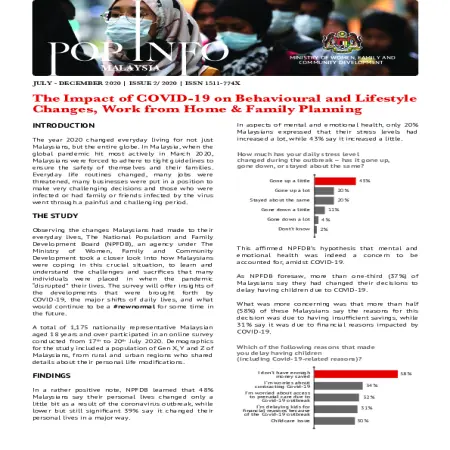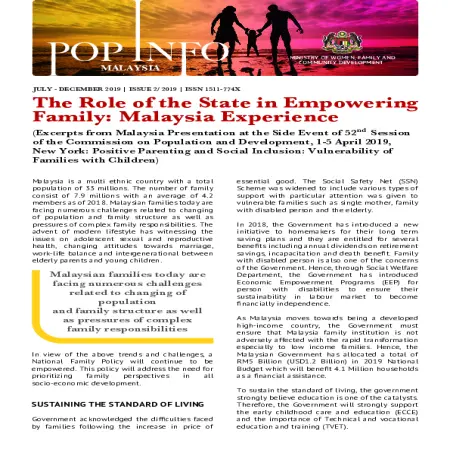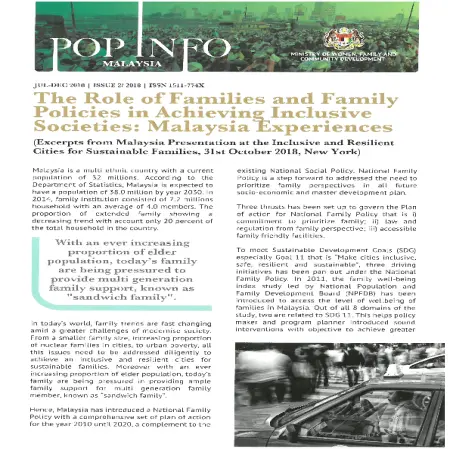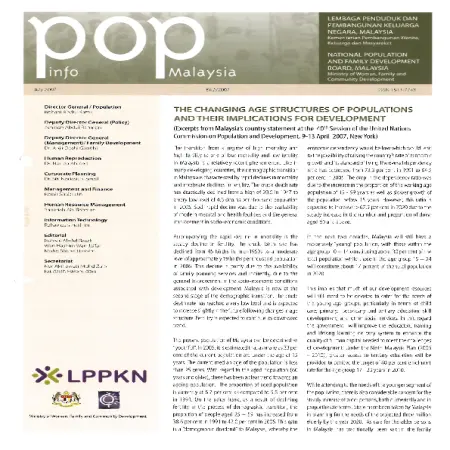Browse by Type
Results for Item type : "Newsletter"
|
|
The impact of COVID-19 on behavioural and lifestyle changes, work from home & family planning
Item Type: Newsletter
Editor:
Year: 00/00/2020
Abstract: This survey will offer insights of the developments that were brought forth by COVID-19, the major shifts of daily lives, and what would continue to be a #newnormal for some time in the future.
|
|
|
|
|
|
The role of the state in empowering family: Malaysia experience
Item Type: Newsletter
Editor:
Year: 00/00/2019
Abstract: Malaysia families today are facing numerous challenges related to changing of population and family structure as well as pressure of complex family responsibilities. The advent of modern lifestyle has witnessing the issues on adolescent sexual and reproductive health, changing attitudes towards marriage, work-life balance and intergenerational between elderly parents and young children. In view of the above trends and challenges, a National Family Policy will continue to be empowered.
|
|
|
|
|
|
The role of families and family policies in achieving inclusive societies: Malaysia experiences
Item Type: Newsletter
Editor:
Year: 00/00/2018
Abstract: With an ever increasing proportion of elder population, today’s family are being pressured to provide multi generation family support, known as “sandwich family”. Hence, Malaysia has introduced a National Family Policy with a comprehensive set of plan of action for the year 2010 until 2020, a complement to the family well-being index. Next, community based intervention program called Family and Community Empowerment Program (FACE) and Family Impact Assessment (FIA) where an evaluation on the impact of family-related policies and program will be accessed.
|
|
|
|
|
|
The changing age structures of populations and their implications for development
Item Type: Newsletter
Editor:
Year: 00/07/2007
Abstract: The demographic transition in Malaysia is characterized by rapid declines in mortality and moderate declines in fertility. Rapid decline in mortality was due to the availability of modern medical and health facilities and the general improvement in socio-economic condition. While, steady decline in fertility due to the availability of family planning services and indirectly, due to the general improvement in the socio-economic conditions associated with development.
|
|
|
|








